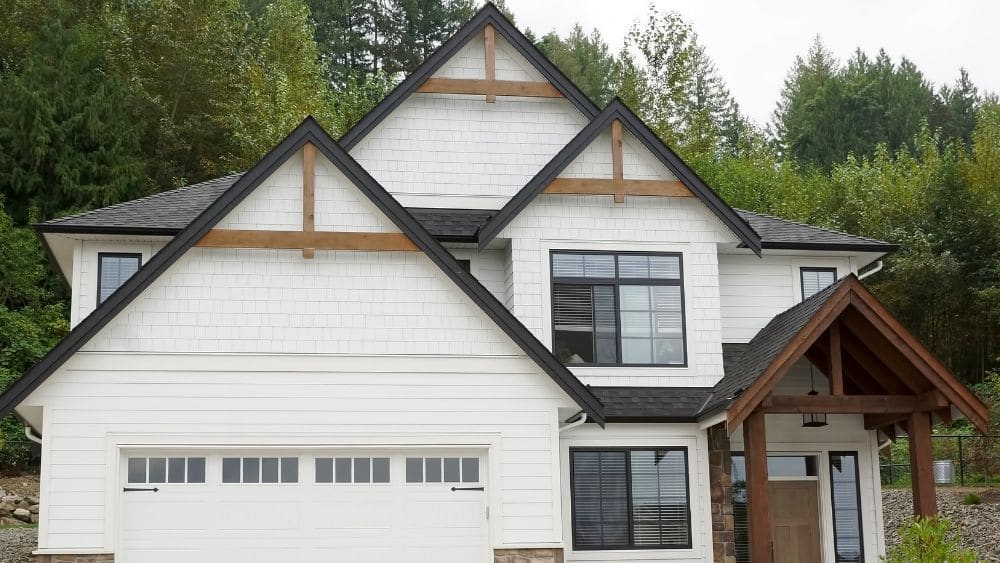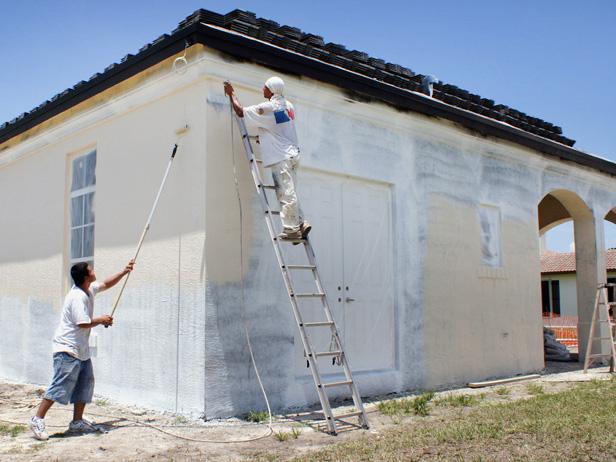
Asbestos house siding has long been used to add a layer of protection to the outside of homes. Because it is durable, inexpensive, and easy-to-clean, it is a popular choice. If it's disturbed, however, it can be a danger to your health. While it's not the cause of cancer, it's still important to note that it can be hazardous when it's not properly maintained. It is important to know what you should expect when selling a house with asbestos siding.
The asbestos house siding can be removed by professionals and replaced. You should take the necessary precautions if you plan to remodel your home. This includes protecting yourself from asbestos fibers. It is important to be aware of all local laws and regulations. You should ensure that the contractor you hire is licensed to do the job. Wear protective gear and research if you are doing the job yourself.

Asbestos can be flammable so make sure to cover it at all times. It can release a lot dust if it is exposed. Protect the siding from dust by covering it with a plastic sheet and tarp. You might even consider painting the exposed areas to help prevent further deterioration.
Asbestos can be dangerous. It's a natural mineral that can be found in a wide variety of materials. Although it's considered safe and affordable, it can pose a danger to health if it isn't properly broken down. It can be hard to see, so it can be hard to determine if you are dealing in the genuine deal. Talk to a realtor if you're concerned. A real estate agent may be able refer you to a company who can handle the job.
Although asbestos used for house siding was quite common in the past it isn't recommended today. Asbestos was a very affordable material, and the health risks of using it weren't entirely understood. It was eventually banned by the government in 1970. Although it's unlikely that your next cancer victim will be you, it's still a good idea.
While it's possible to remove or replace asbestos siding, it's not cheap. It can cost as much as a few hundred dollars to replace asbestos siding. It is important to know the state laws before you start. You might end up in legal trouble if your actions are not correct. You might also have to pay for the removal. Before you start the job, it's a good idea consult a certified abatement firm.

It's best to wait if you aren't planning on selling your home soon. However, if you do need to do it, don't rush. You'll be able to rest easy knowing that you paid a small amount.
FAQ
Do I need permits to renovate my house?
Yes. Permits will be required for any home-improvement project. A building permit and plumbing permit are required in most cases. A zoning permit is also required depending on the type and extent of work you are performing.
What room should you remodel first?
The heart of any house is the kitchen. It is where you spend your most time cooking, entertaining, eating, and relaxing. So if you are looking for ways to make your kitchen more functional and attractive, start there!
Bathrooms are an important part any home. It offers privacy and comfort for daily chores such as washing your hair, brushing your teeth, shaving, or getting ready to go to bed. This will make these rooms more functional and beautiful.
How can you renovate your house without spending a lot of money?
The following steps should be taken when renovating a house without any money:
-
You should create a budget plan
-
Find out which materials you require
-
Pick a place for them
-
Make a list.
-
Calculate how much money is available
-
Plan your renovation project
-
Start working on your plan
-
Do some online research
-
Ask friends and family to help
-
Get creative!
Can you live in your house while it's being renovated?
Yes, I am able to live in a house and renovate it.
Can you live in a house while renovations are going on? It depends on the length of the construction. If the renovation takes less time than two months, then no, you can still live in your home during construction. You cannot live in the home while renovations are taking place if they last more than 2 months.
You should not live in your house while there is a major building project underway. This is because you could be injured or even killed by falling objects on the construction site. A lot of heavy machinery is used at the jobsite, which can lead to noise pollution and dust.
This is especially true if you live in a multi-story house. The vibrations and sounds that construction workers create can cause damage to your property and contents.
You will have to live in temporary accommodation while your home renovations are underway. This means that you won't have access to all the amenities that come with your own home.
For example, you will not be able to use your washing machine and dryer while they are undergoing repair. It will be difficult to bear the smell of paint fumes as well the sounds that workers make.
These factors can cause stress and anxiety in you and your family. So it is important that you plan ahead so you don't feel overwhelmed by all the circumstances.
To avoid costly mistakes, do your homework before you make any decisions about renovating your home.
A reputable contractor can also be of assistance to you in order to make sure everything runs smoothly.
How often should my furnace filter be changed?
How often your family expects to use the heating system in their home will determine the answer. If you plan to leave your house for long periods of time during cold weather months, you may consider changing your filter more frequently. However, if you rarely go out of the house, you may be able to wait longer between changes.
A furnace filter can last about three months. This means that your furnace filters should be changed every three to four months.
For information on when to replace your filter, you can consult the manufacturer. Some manufacturers suggest changing your filter every heating season. Others recommend waiting until you see dirt buildup.
How do I choose a good contractor?
When choosing a contractor, ask friends and family members for recommendations. You can also look online for reviews. You should ensure that the contractor you select has experience in the field of construction you are interested. Get references from other people and review them.
How much does it set you back to renovate your house?
Renovations cost typically $5,000 to $50,000. Renovations can cost homeowners anywhere from $10,000 to $20,000
Statistics
- The average fixed rate for a home-equity loan was recently 5.27%, and the average variable rate for a HELOC was 5.49%, according to Bankrate.com. (kiplinger.com)
- It is advisable, however, to have a contingency of 10–20 per cent to allow for the unexpected expenses that can arise when renovating older homes. (realhomes.com)
- A final payment of, say, 5% to 10% will be due when the space is livable and usable (your contract probably will say "substantial completion"). (kiplinger.com)
- Most lenders will lend you up to 75% or 80% of the appraised value of your home, but some will go higher. (kiplinger.com)
- According to the National Association of the Remodeling Industry's 2019 remodeling impact report , realtors estimate that homeowners can recover 59% of the cost of a complete kitchen renovation if they sell their home. (bhg.com)
External Links
How To
How to Renovate an An Old House
Before you start, it is essential that you decide which type of renovation project to undertake. This could be as simple as updating your kitchen equipment or completely renovating your entire home.
Once you have decided what type of renovations you want to undertake, the next step is to determine how much money it will cost. Sometimes, you might not have enough money to pay the full project cost. This is a sign that you may not have enough funds to cover the entire cost of the project.
If you decide that you're going to go ahead and carry out renovations, then there are several things that you need to consider before starting work. You need to make sure you have the right permits for your project. Also, check to see if you need planning permission in order to do certain types work. If you are planning to make extensions to your house, you may need to apply to the building consent.
Before you begin to renovate your house, make sure to check with the local authority to confirm that they do not require additional permits. Make sure you check whether each section of the house needs to be given planning permission. Finally, if you're carrying out any major works such as installing a new roof, you might need to contact your insurance provider to make sure that you have adequate cover in place.
After obtaining all permits, the next step is to select the right tools and materials. There are many different options available, so it's important to take your time to research them thoroughly. Some of the most common items that people use during their renovation projects include paint, wallpaper paste, flooring, tiles, carpets, insulation, fencing, doors, windows, lighting, plumbing, heating systems, electrical wiring, plasterboard, timber, concrete, bricks, tiling, mirrors, sinks, taps, toilets, washing machines, ovens, refrigerators, microwaves, dishwashers, vacuum cleaners, carpet cleaning equipment, air conditioning units, fireplaces, chimneys, and even garden furniture!
It is important to evaluate the quality of these items when you are shopping for them. Cheap products tend to last only a short period of time, whereas good quality products will usually last longer and provide better value for money. You should only buy what you need when purchasing anything. It's important to not buy too much. You could waste valuable resources and end up with a lot of wasted material. Instead, purchase only what you need.
Once you have chosen the materials, it is time to plan where you will store them while you work on the property. If you're renovating a large area of the house, then you might need to rent storage space in order to keep all your supplies safe until you're ready to put them back inside the house. Alternatively, you could ask family members or friends to help you move all the items around.